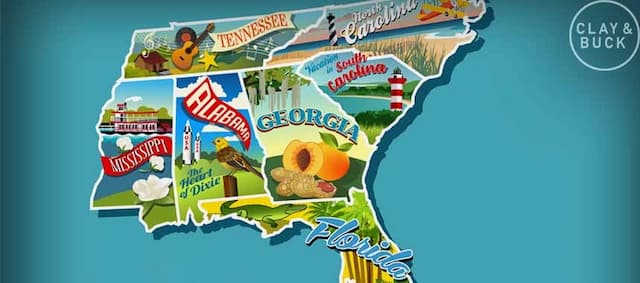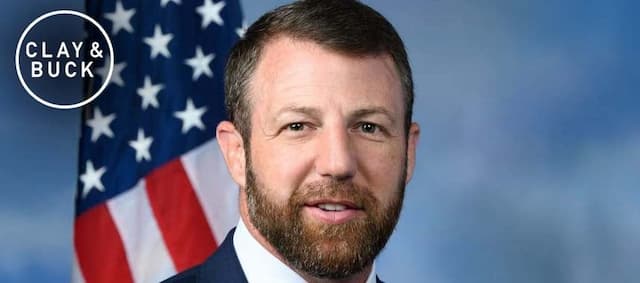Radio Host Mark Moss Talks About the Economy
BUCK: Wait. I remember when a couple months ago the price of gas had nothing to do with Joe Biden, none of his policies.
.@PressSec: “As of this morning, gas prices have dropped $.81 per gallon since their peak in June…That means American families with two cars are saving $80 a month, drivers can now find gas for $3.99 or less around half of all gas stations across the country.” pic.twitter.com/AIv2hu4Sld
— Kevin Tober (@KevinTober94) August 1, 2022
BUCK: Oh, now the price of gas seems to be receding, we are also heading into — we are in — a recession, which does tie in together, doesn’t it? And it’s ’cause Biden’s a genius. Let’s bring in somebody who can help us make sense of the madness here. Mark Moss is with us now, host of The Mark Moss Show on iHeartMedia, coauthor of the new book, The UnCommunist Manifesto. Mark, great to have you joining us.
MOSS: Yeah, thanks so much. Pleasure to be here.
BUCK: So, you tweeted this yesterday, and I thought it was really interesting, wanted to have you expand on this one for us right now ’cause you just heard there from Karine Jean-Pierre, you know, that the peasants need to be happy with all the pennies they are saving now on gas and they should stop whining about the cost of everything else and inflation overall. A reset, you wrote, is coming for sure, but not a centralizing reset like FDR Bretton Woods. It will be a decentralizing reset as the power centers of the world crumble as the fiat systems fail and Bitcoin adoption grows, it won’t be easy, but it will be the necessary reset of liberty. Taking a big swing there, Mark. What do you make of it?
A reset is for sure coming, but not a centralizing reset like FDR/Breton Woods
It will be a decentralizing reset as the power centers of the world crumble as the fiat systems fail and #Bitcoin adoption grows. It won’t be easy, but it will be the necessary reset of liberty.
— Mark Moss (@1MarkMoss) August 1, 2022
MOSS: Yeah, that’s a big swing. You know, we are witnessing right now the greatest centralization the world has ever seen through the NGOs like the World Economic Forum and World Health Organization and supposedly all the governments of the world coming together, globalism and of course the (unintelligible) is practicing or preaching this Great Reset we’ve been hearing about. But I think that history tells us something different. And so, there’s a pendulum of history that swings in 250 year time frame from centralization back to decentralization. And that’s where we’re at right now.
The world is starting to decentralize. So, while the centralization efforts are grasping trying to squeeze power, the world’s breaking apart. We can see this geopolitically, you know, with the Russia-Ukraine crisis. We can see it with China and how those tensions are straining. But no matter how much they try to centralize things, the trend now is towards decentralizing, the power structures of the world, as I said, are starting to crumble and break apart. The fiat money system that’s helped everything stay together is falling, currencies are collapsing left and right, right now. And so, the trend, they can’t stop the trend.
BUCK: So, what does that mean for us here in this country, let’s say over the next six to 12 months, you know, we just had the two official quarters of negative GDP; so, we are, by normal people’s definitions, not by Biden definition, in a recession. I have a lot of people telling me including folks with a lot of experience on Wall Street and running businesses saying, yeah, we’re in the beginning of the recession. It’s not like, oh, recession just happened. Now we’re all done. What do you think of that, and where do you think it’s going?
MOSS: Yeah. I mean, we’re no doubt, we’re in a recession. You know, even if they change the definition, we still all see it. They continue to tell us that the economy is strong, as the White House press secretary says. However, the economy and the job numbers show a completely different data point. So, we see massive layoffs happening all over the economy, the job duty is very, very weak. The unemployment numbers they claim is misleading at best because really if you look at the job participation rate, we’re at a very low number of people that actually participate in the workforce.
BUCK: Why is that do you think, by the way? I talked to Glenn Jacobs of Knox County, mayor of Knox County, Tennessee, before about this. I asked Art Laffer about this. I’m just sort of curious to get as many people who are following this, their takes as possible ’cause it feels like we got a bunch of answers but not an answer.
 MOSS: As to why the economy’s crumbling or as to why –?
MOSS: As to why the economy’s crumbling or as to why –?
BUCK: No, as to why the job market is what it is right now. You have millions of unfilled jobs. People don’t want to — seem to not want to take them. I hear it’s ’cause some people are still being paid to stay home. But that feels like that ended a while ago for most folks. What gonna go with the labor market specifically?
MOSS: Well, we’ve had a shift in the labor market, you know, over the last 50 years, a gradual shift. But we’re losing high quality jobs, and now it’s trending towards low quality jobs; so, I think less people to want take those low-quality jobs, meaning part-time work, fast food, things like that. So, while you typically see signs all over the place for, you know, coffee baristas or things like that, you’re not really seeing that in the actual, like, you know, more white-collar type of jobs, if you will. I think so there’s a shift in the type of jobs that are available. Most of the good quality jobs have been offshored.
So, customer service jobs, sales jobs, things like that. And so, yeah, we have a rise in service economy jobs. Those typically low-paying jobs. And then you have the inflation, which is a big problem. And so, the rate of inflation’s going up so high, specifically with gas prices going up so high, which you were talking about before I came on, and so, then you have problems with commuters. And so, like I’m here in Southern California, and sometimes to get into Los Angeles people commute over an hour each way per day, and with the gas prices going up so high, services going up like day care going up so high, it just makes sense not to work anymore.
BUCK: Speaking to Mark Moss, host of The Mark Moss Show on iHeart. And, Mark, I wanted to have you react to Senator Chuck Schumer, who is promising the Inflation Reduction Act is gonna happen, and it’s gonna reduce inflation. Listen.
SCHUMER: This week the Senate will take action on a groundbreaking piece of legislation, one that we haven’t seen in decades. The Inflation Reduction Act of 2022. Over the coming days, both sides will continue conversations with the parliamentarian in order to move forward the bipartisan birdbath process. Our timeline has not changed, and I expect to bring this legislation to the Senate floor to begin voting this week.
BUCK: How confident are you that there will be — or not confident, perhaps, that there will be any positive change to inflation because of this spending bill?
MOSS: Yeah. Well, first of all, the true definition of inflation is the increase of the money supply. And so, we know this is gonna increase the money supply so it’s gonna cause inflation. When you talk about prices going up, consumer price inflation, it’s a little bit harder to gauge. But to the point that I’d like to say, just look at the name of that bill. And pretty much anytime a government names a bill something like that, like the Save the Puppies Act, it sounds all warm and cuddly and fuzzy, it’s usually the opposite. So, to think that there’s gonna be any price coming down based off of this is ridiculous.
 So, most of this bill is about changing the energy in the United States from a fossil fuel, oil, natural gas, over to a renewable energy or we may call it an unreliable form of energy. We can see all throughout the world examples of this like in Germany, for example, their energy prices have gone up by 10X when they tried to do this. So, one, it’s gonna be more money printing, more money spending. It’s not gonna bring prices down. Two, by changing the fuel structure of the United States, it’s gonna push prices up as well. So, I don’t see any hope of this actually bringing prices down or bringing any relief to the consumer.
So, most of this bill is about changing the energy in the United States from a fossil fuel, oil, natural gas, over to a renewable energy or we may call it an unreliable form of energy. We can see all throughout the world examples of this like in Germany, for example, their energy prices have gone up by 10X when they tried to do this. So, one, it’s gonna be more money printing, more money spending. It’s not gonna bring prices down. Two, by changing the fuel structure of the United States, it’s gonna push prices up as well. So, I don’t see any hope of this actually bringing prices down or bringing any relief to the consumer.
BUCK: Check out the Mark Moss podcast on iHeartMedia. Mark, thanks for being with us, man. Appreciate it.
MOSS: Thank you. Appreciate that. Check out The UnCommunist Manifesto book.
BUCK: Oh, yes, The UnCommunist Manifesto book. Go check that one out as well.





